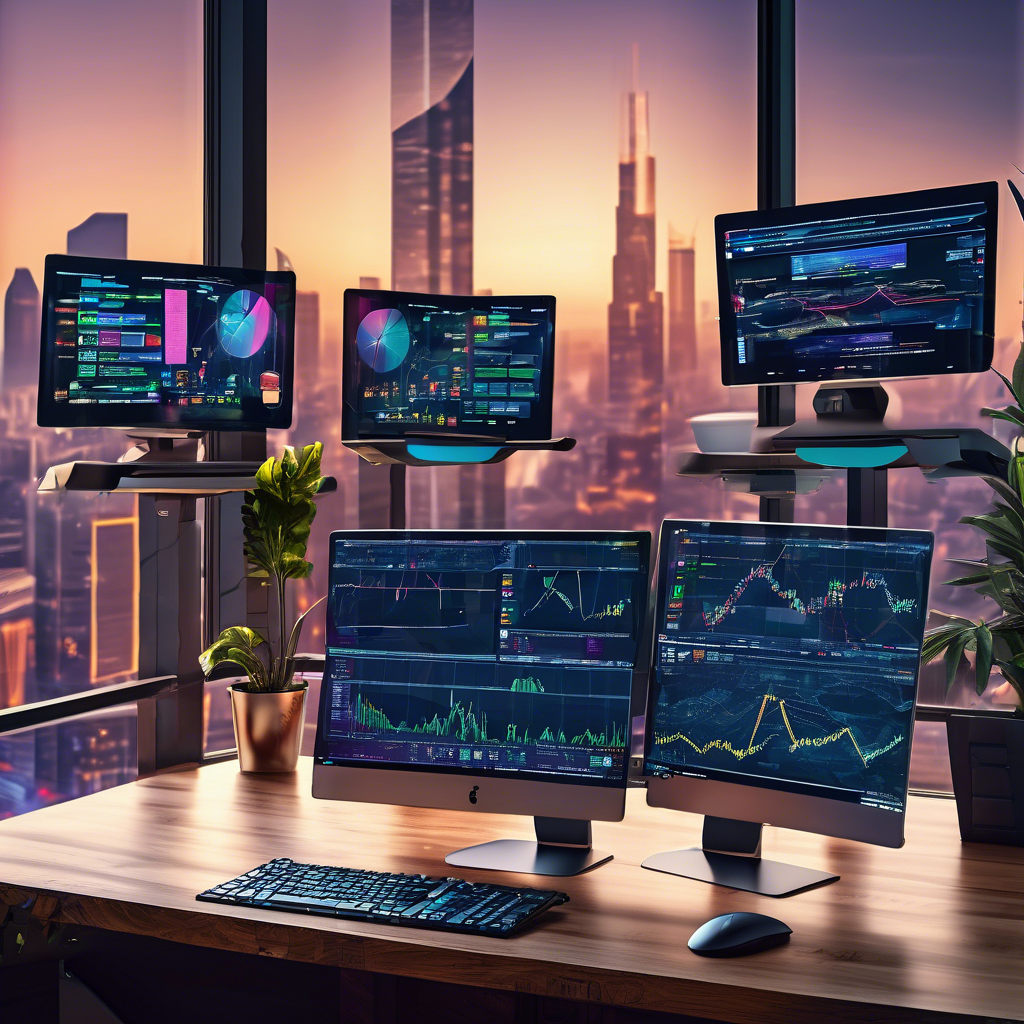Silicon Valley’s AI Sector Thrives Amid Tariffs and Political Instability

Despite significant economic turmoil caused by President Trump's aggressive tariff policies—imposing surcharges up to 245% on Chinese goods—and ongoing political instability, Silicon Valley’s AI-driven technology sector remains remarkably resilient and optimistic. Founders, entrepreneurs, and investors largely dismiss these external disruptions, focusing instead on the transformative potential of artificial general intelligence (AGI) as the key engine for future economic growth. The high tariffs have undeniably posed challenges, especially for companies dependent on international supply chains and hardware imports from China, increasing operational costs and complicating rapid startup scaling. Still, many in the tech community view these trade issues as temporary and reversible, trusting knowledgeable policy advisors within the Trump administration to eventually restore a stable trade environment. Central to Silicon Valley’s momentum is the rapid advancement of generative AI technologies, which have revolutionized how startups are conceived, launched, and funded. With generative AI tools, young companies can quickly develop prototypes and attract substantial venture capital without costly upfront investments or fully established business models. This innovation has lowered barriers to entry and energized a dynamic startup culture that prioritizes speed and adaptability. A notable feature of this innovation wave is the rise of “hacker houses” like Accelr8—collaborative spaces where entrepreneurs and developers rapidly build and scale AI ventures. These communities blend creativity, cooperation, and competition, often favoring fast iteration and growth over thorough development or immediate monetization, aiming to capture market share and technological leadership early for long-term success. Despite widespread enthusiasm, concerns have grown over the disruptive potential of automation-driven unemployment and social challenges arising from rapid AI deployment. Protests warn that automation may disproportionately harm low- and middle-income workers, intensifying income inequality and instability. However, these worries have had limited influence on Silicon Valley’s core investors and founders, who prioritize AI innovation over broader economic and political risks. Another crucial pillar of Silicon Valley’s success is its access to international talent, vital for maintaining technological leadership.
Yet recent immigration restrictions have sparked concerns about impairing America’s innovation edge. Industry leaders criticize these limitations as shortsighted and advocate for reforms to sustain the inflow of global talent, emphasizing that an open immigration policy is essential to uphold Silicon Valley’s dominance in AI amid a globalized tech economy. Despite these external pressures, Silicon Valley maintains a strong sense of technological exceptionalism, grounded in the belief that breakthroughs in AI will continue to revolutionize the economy regardless of geopolitical volatility. Founders and investors regard AI as a transformative economic force comparable to the industrial revolution or the rise of the internet. This confidence has fueled substantial investments not only in startups but also in research institutions, accelerators, and educational programs focused on developing the next generation of AI talent. The ecosystem increasingly targets scalable AI platforms capable of digitally replicating human labor, opening avenues for automation across sectors such as healthcare, finance, transportation, and the creative industries. In conclusion, while the broader U. S. economy confronts uncertainties from trade policies and political instability, Silicon Valley’s AI sector advances with optimism and determination. Innovators remain undeterred by tariffs and immigration hurdles, convinced that artificial general intelligence will spark a new era of economic growth and technological progress. This steadfast commitment to AI underscores Silicon Valley’s unique role as a global innovation hub poised to shape the future economy profoundly despite current geopolitical complexities.
Brief news summary
Despite significant economic challenges from President Trump’s high tariffs—reaching up to 245% on Chinese imports—and ongoing political instability, Silicon Valley’s AI-driven tech sector remains resilient and optimistic. Founders, entrepreneurs, and investors largely dismiss these disruptions, focusing instead on artificial general intelligence (AGI) as the key driver of future growth. Although tariffs have increased costs and complicated supply chains, many view these obstacles as temporary, utilizing tech-savvy advisors to help stabilize trade relations. Rapid advances in generative AI allow startups to quickly develop prototypes and attract venture capital with limited resources. Innovative collaborative spaces like “hacker houses,” such as Accelr8, further accelerate innovation and market expansion. Despite concerns about automation’s social impact and restrictive immigration policies limiting access to talent, Silicon Valley continues heavy investments in AI research, startups, and education. This enduring technological exceptionalism secures its position as a global innovation leader amid geopolitical volatility, enabling it to overcome challenges and confidently pursue AI’s transformative potential.
AI-powered Lead Generation in Social Media
and Search Engines
Let AI take control and automatically generate leads for you!

I'm your Content Manager, ready to handle your first test assignment
Learn how AI can help your business.
Let’s talk!

Ford explores decentralized legal data storage on…
Ford Motor Company, a Fortune 500 firm, has partnered with Iagon and Cloud Court to initiate a proof-of-concept (PoC) centered on decentralized legal data storage, according to an announcement dated June 18.

Pope Leo XIV Expresses AI Concerns for Children's…
Pope Leo XIV has expressed profound concerns about artificial intelligence’s (AI) effects on the intellectual, neurological, and spiritual development of children.

Deezer Implements AI Song Tags to Combat Fraud
Deezer, the major Paris-based music streaming service, is actively tackling the growing issue of AI-driven fraud on its platform.

Coinbase Seeks SEC Approval for Blockchain-Based …
Coinbase, a leading cryptocurrency exchange, is pursuing approval from the U.S. Securities and Exchange Commission (SEC) to offer "tokenized equities" to its users, as revealed by Paul Grewal, Coinbase’s Chief Legal Officer, in a Reuters interview.

CEOs Warn of AI's Impact on Corporate Workforces
The latest Axios AM newsletter covers key updates across technology, politics, and international affairs.

ZIGChain Summit 2025 Reveals Shariah RWA Platform…
The inaugural ZIGChain Summit 2025, held in Dubai, marked a significant milestone in decentralized finance, bringing together leaders from Traditional Finance (TradFi), Web2, and Web3 sectors.

Amazon CEO Warns of AI-Driven Job Reductions in C…
Amazon CEO Andy Jassy has issued a significant warning about the company’s future workforce strategy amid its growing integration of artificial intelligence (AI) across operations.

 Auto-Filling SEO Website as a Gift
Auto-Filling SEO Website as a Gift








 Auto-Filling SEO Website as a Gift
Auto-Filling SEO Website as a Gift

